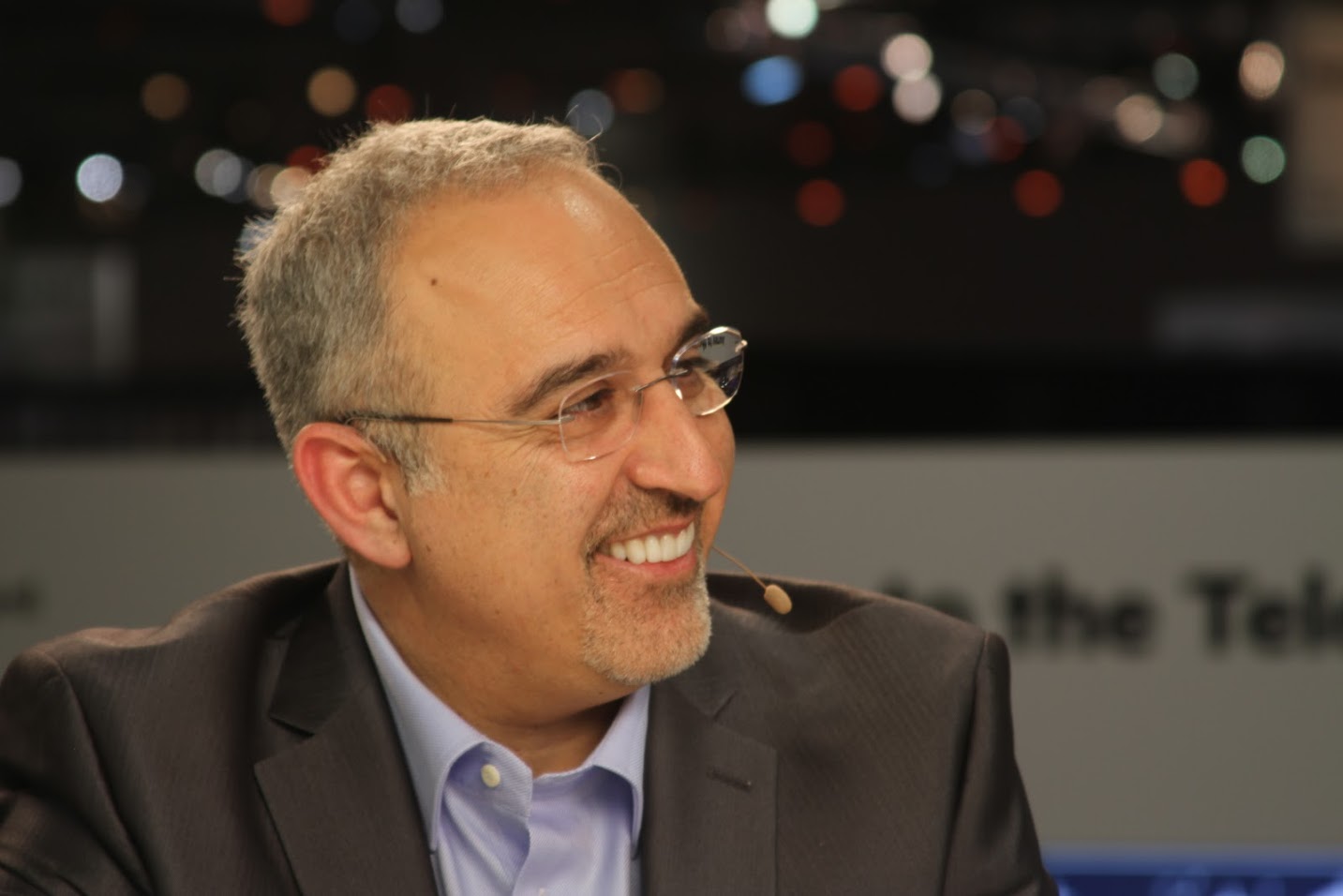 CLOUD
CLOUD
 CLOUD
CLOUD
 CLOUD
CLOUD
The “e” stands for “enterprise” at HPE, but it’s rapidly coming to mean “edge” as well.
After outlining the company’s edge-centric, data-driven hybrid cloud strategy at its June conference in Las Vegas, Hewlett Packard Enterprise Co. Chief Executive Antonio Neri (pictured) added more details to the future focus today, some five months after he took over the top spot at HPE.
“We are pivoting more to software-designed and artificial intelligence,” Neri said during an appearance at an event in San Francisco hosted by Thomson Reuters Corp. today. “The vast majority of growth will come from the edge.”
HPE has already announced a $4 billion, four-year investment in edge computing, a move that Neri underscored on Monday with a description of new architectures involving connected cars, smart hospitals and wireless-enabled power grids as contributors to the data wave that enterprise computing must meet.
“Seventy-five percent of data being generated today starts at the edge,” Neri said. “We see the edge as a huge opportunity for HPE.”
Integral to HPE’s strategy will be the deployment of artificial intelligence in what the company has characterized as the intelligent edge. Central to the company’s deployment of AI will be Aruba, its wireless networking acquisition three years ago. In March, HPE purchased Cape Networks to expand Aruba’s AI networking capabilities.
“We’re investing more and more in AI capabilities at the infrastructure level,” Neri said. “Ultimately what we are doing is embedding AI in everything we do.”
Processing massive amounts of data at the edge while packing analytics into the mix will require thinking outside the traditional models of computing. This was very much on Neri’s mind Monday, as he described how HPE is moving toward a memory-driven model, where the data itself becomes the center of the tech infrastructure rather than processors surrounded by smaller amounts of memory.
To accelerate data processing at the edge, HPE is undertaking a major research project – The Machine – which is devoted to implementing memory-driven architecture. “You would have to build many Hoover Dams to power these data centers,” Neri explained. “It’s cheaper to move the compute to where the data is. Memory-driven compute will radically change everything.”
HPE is continuing its presence in the supercomputer space as well. The company announced on Monday that a Swiss initiative – the EPFL Blue Brain Project – had selected HPE to build a supercomputer for modeling and simulation of the mammalian brain. The supercomputer will be based on the HPE SGI 8600 System.
“Faster processors, higher processor density and new platforms enable new use cases that have previously been hard to realize or even in their realm of science fiction,” noted Patrick Moorhead, president and principal analyst at Moor Insights & Strategy. “It’s especially good to see progress in healthcare and disease research, so congrats to HPE for building this supercomputer.”
In addition to commenting on the technical side of HPE’s business, the company’s CEO took the opportunity to wade into policy waters as well. Asked about the contentious subject of immigration, Neri, the son of two Italian parents and born in Argentina, made it clear that he will not be endorsing the U.S. government’s current policy anytime soon.
“I’m not in agreement with what’s going on here,” Neri said. “This country was built with immigrants. We have to work with lawmakers to make sure we have the right approach.”
As for escalating U.S. tensions with China. HPE’s chief executive was careful to say that the company’s products have not yet been affected by recently imposed tariffs on imported goods from China and indicated that it could manufacture more products in the U.S. if needed. The company produces three servers every 10 seconds worldwide, according to Neri.
“The issue is how to manage our supply chain to best serve our customers,” Neri said. “Global trade is a very complex issue. We just need to come together and have a conversation.”
With reporting from Mike Wheatley
Support our open free content by sharing and engaging with our content and community.
Where Technology Leaders Connect, Share Intelligence & Create Opportunities
SiliconANGLE Media is a recognized leader in digital media innovation serving innovative audiences and brands, bringing together cutting-edge technology, influential content, strategic insights and real-time audience engagement. As the parent company of SiliconANGLE, theCUBE Network, theCUBE Research, CUBE365, theCUBE AI and theCUBE SuperStudios — such as those established in Silicon Valley and the New York Stock Exchange (NYSE) — SiliconANGLE Media operates at the intersection of media, technology, and AI. .
Founded by tech visionaries John Furrier and Dave Vellante, SiliconANGLE Media has built a powerful ecosystem of industry-leading digital media brands, with a reach of 15+ million elite tech professionals. The company’s new, proprietary theCUBE AI Video cloud is breaking ground in audience interaction, leveraging theCUBEai.com neural network to help technology companies make data-driven decisions and stay at the forefront of industry conversations.